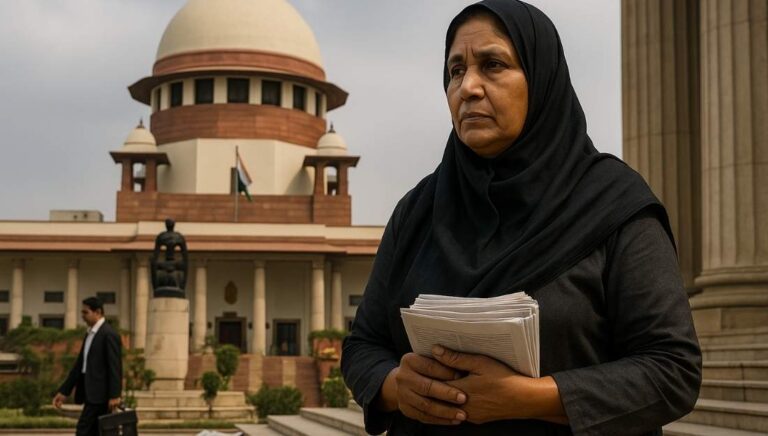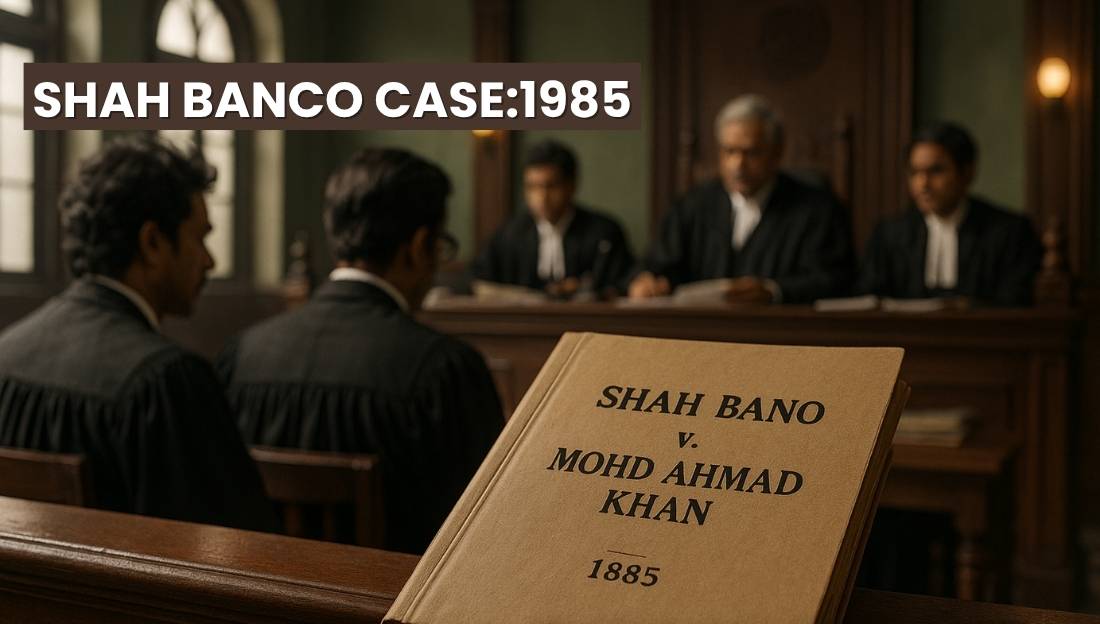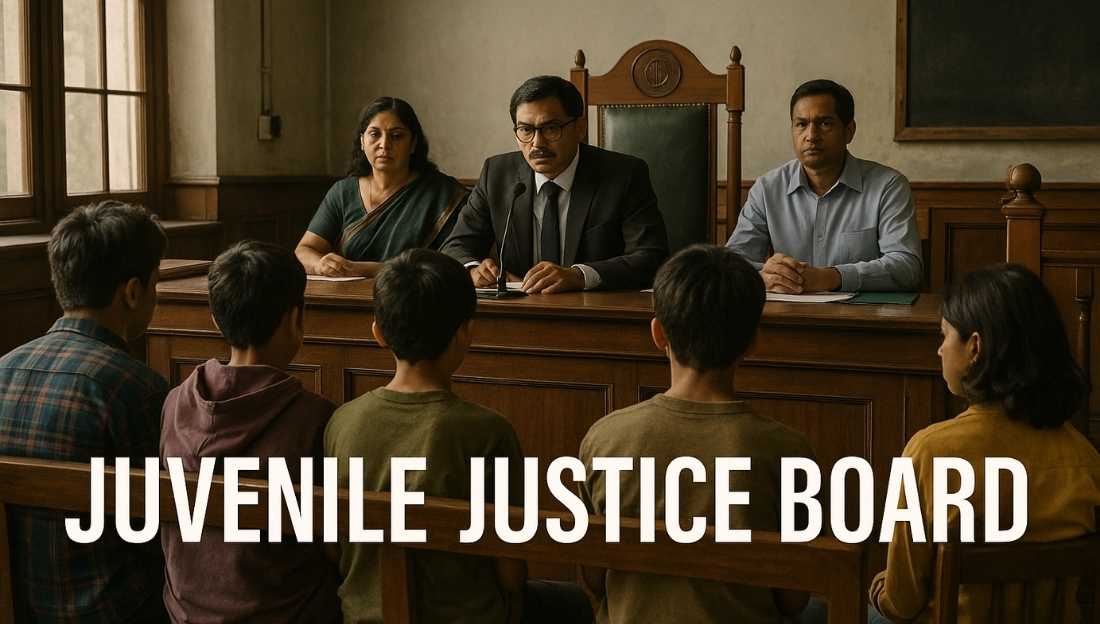The Shah Bano Case (1985) questioned whether secular criminal laws ensuring maintenance could override religious personal laws. The case continues to influence debates on women’s rights, minority identity, and the Uniform Civil Code (UCC).
Background of the Case
- Shah Bano Begum, a 62-year-old Muslim woman from Indore, was divorced by her husband in 1978 through triple talaq after 43 years of marriage.
- She sought maintenance under Section 125 of the CrPC, a secular law guaranteeing support for those unable to maintain themselves.
- Her husband argued that under Muslim personal law, his responsibility was only during the iddat period, and payment of mahr fulfilled his duty.
- The local court granted ₹25 monthly maintenance; the MP High Court later increased it to ₹179.20. The husband appealed to the Supreme Court.

Supreme Court Judgment (1985)
- A five-judge Constitution Bench led by CJI Y.V. Chandrachud upheld the High Court ruling.
- Key Observations:
- Section 125 CrPC applies to all citizens, irrespective of religion.
- A divorced Muslim woman is entitled to maintenance beyond iddat if she lacks means of survival.
- The Court cited Quranic verses, showing that Islamic teachings support caring for divorced women.
- The Court noted that Article 44 (UCC) had remained ineffective and urged movement towards a common civil code to ensure equality.
Political and Legal Aftermath
- To calm protests by some Muslim bodies, the government passed the Muslim Women (Protection of Rights on Divorce) Act, 1986.
- It restricted the husband’s liability to maintenance only during iddat, and placed later support responsibility on relatives or Waqf Boards.
Judicial Re-interpretations
- Danial Latifi v. Union of India (2001): The Supreme Court upheld the 1986 Act but stated the husband must provide a lump-sum, reasonable settlement during iddat to support the woman for life.
- Mohd. Abdul Samad v. State of Telangana (2024): The Court reaffirmed that Muslim women may still seek maintenance under Section 125 CrPC, preserving legal choice.
Significance
- Symbol of women’s rights vs religious authority.
- Influenced debates on secularism, minority rights, judicial activism.
- Triggered discussions on the Uniform Civil Code and constitutional morality.
Relevant Current Affairs
- The Muslim Women (Protection of Rights on Marriage) Act, 2019 banned instant triple talaq, reinforcing gender justice.
- Uttarakhand (2024) is preparing to implement a Uniform Civil Code, renewing national debate.
Conclusion
The Shah Bano case continues to stand as a milestone in the fight for gender justice, illustrating how constitutional values must guide personal laws in a diverse and democratic society.
This topic is available in detail on our main website.





